- Home
- Curriculum
- Early Years Foundation Stage - EYFS
Early Years Foundation Stage - EYFS
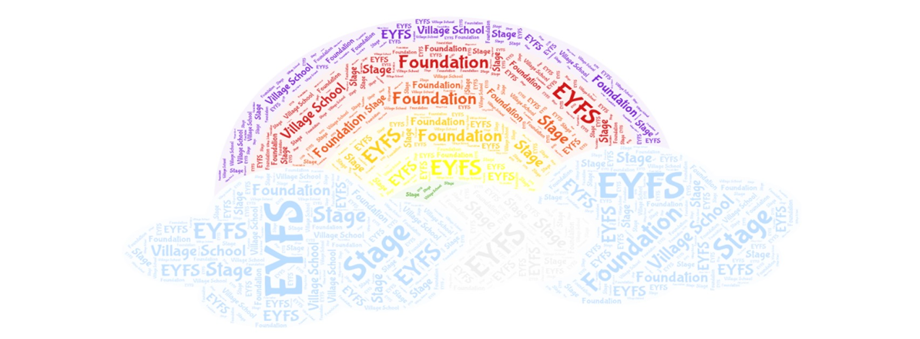
"Through unstructured exploration, we foster the development of imagination and creativity. "
[Beth Rosenthal Davis]
What is The Early Years Foundation Stage (EYFS)?
The Early Years Foundation Stage (EYFS) sets standards for the learning, development and care of children from 0-5 years of age. It is an important stage of development because it helps children get ready for school and prepares them for their future learning and successes. At the Village School, we follow the statutory framework for EYFS 2021 and we use the government’s non-statutory curriculum, Development Matters, to deliver the EYFS learning development requirements which comprise:
- The seven areas of learning and development, and the educational programmes
- The early learning goals summarise the knowledge and skills gained at the end of the reception year.
- Assessment requirements for practitioners.
The seven areas of development are:
Prime Areas
- Communication & Language
- PSED (Personal Social and Emotional Development)
- Physical Development
Specific Areas
- Literacy
- Maths
- Understanding the World
- Expressive Arts & Design
What Do We Teach?
Intent
When learners commence at The Village School in Early Years, they are introduced to a three-year rolling programme which they complete at the end of KS1. The programme provides a change of theme every term in order to prevent repetition, and the themes are as follows:
Please see The Village School Curriculum Policy for intent at the end of every key stage.
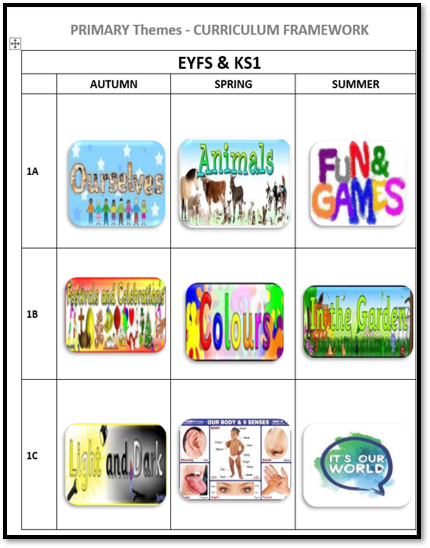
EYFS learners are incorporated into Key Stage 1 classes based on their needs and abilities.
Learners engage in activities which are adult-directed and child-initiated, as well as whole class, group and 1:1 sessions. The classroom environment enables learners to experience reading, mark-making and role-play activities on a regular basis. We create learning journeys where we record and annotate progress. This record is a combination of observations, annotated photos, learners’ work and parental voice.
At the beginning of the Autumn term, children are baselined within 6 weeks of commencing school and their progress is monitored using a robust and rigorous assessment tool system from early years until they leave school as teenagers. In accordance with the Department for Education (DfE), we also carry out a Reception Baseline Assessment (RBA), which is a new national assessment that is administered in all primary, infant and first schools in England to children in reception classes. The RBA provides a snapshot of where children are when they arrive at school and it also provides a starting point to measure the progress schools make with their learners between reception and at the end of primary school.
The EYFS uses a play-based approach to learning and focuses on having a curriculum that gives each young person the best start to their education through a carefully planned environment. Teachers carefully plan to enable all learners to develop critical skills in order to be successful learners, such as early communication, focus and attention, independence, life and social skills and learning routines associated with being at school. When pupils come into the EYFS Department, the Family Liaison Advisor and teacher conduct a home visit and visit the young person in their current setting.
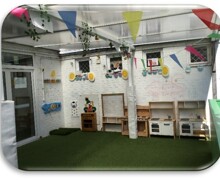
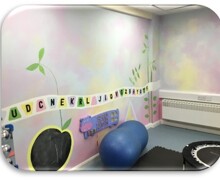
We strongly believe that our provision:
- Is broad and balanced with the flexibility to meet individual needs.
- Reflects progression and be differentiated to support the range of learners we have in school.
- Promotes spiritual, moral, social, cultural and physical development
- Promotes creativity in learning.
- Uses the community as an extension of the classroom to reinforce the work that we do in school. Prepares pupils for the transition to adolescence and adulthood
- Engages parents in partnerships to enhance the pupil’s cognitive, emotional and social development. Operates within a clear framework of planning, assessment and reporting
The primary school aims to prepare children and young people with the knowledge and skills they need in a fast-changing world through a rounded education and opportunities. We believe every child has the right to be as independent as possible, so skills to develop, enable and support our children and young people are taught within our curriculum and in everyday activities, expectations, and opportunities.
Many of our pupils have a diagnosis of Autistic Spectrum Condition (ASC). Our offer to meet the needs of these pupils includes a dedicated, specialised curriculum with a range of teaching methods, interventions, approaches and strategies to promote and encourage good progress and access to the curriculum. In addition to this, we also offer a personalised curriculum and assessment for our pupils with profound and multiple learning disabilities.
How Do We Teach?
Implementation
We give our learners opportunities to succeed in a creative, safe, calm environment where classrooms and other learning spaces promote creativity and high aspiration. We encourage our children to be resilient and leaders in their learning.
Our vibrant and rich curriculum is designed to provide children with a broader range of subjects and experiences in school and our community but with a firm focus on developing key skills and subject-specific skills.
Our curriculum approaches in primary school consider how learners learn, not solely in structured lessons but also the space between lessons, the wider school environment, and the behaviours and values of The Village School community.
Early Years: Learning focuses on the seven areas of learning and development detailed above. which are as follows:
The prime areas continue to be fundamental throughout the EYFS and the specific areas include essential skills and knowledge. Our curriculum is focused on developing skills through engagement in structured play activities, child-initiated games, exploration and outdoor play.
Key Stage 1: Teaching and learning further builds on these areas with an increasing emphasis on Literacy & Numeracy and Independent Living Skills.
Key Stage 2: Learners continue to build on prior learning following our innovative and personal curriculum, including content from Bold Beginnings (Reception) and are prepared and supported for transition into Key Stage 3 and beyond.
We make sure curriculum implementation enables scaffolding of the skills and knowledge within a cross-curricular and thematic approach each term.
We foster independent learning, where children explore and are encouraged to develop an enquiring mind.
We ensure progress is well planned for and supported through opportunities for reinforcement and generalisation.
Our school prides itself on supporting the school’s values of a total communication approach to our teaching and learning. The curriculum is developed and delivered through careful planning and assessment of individual needs
Our curriculum incorporates a variety of strategies and approaches personalised to small group and individual needs. Early Years and Key Stage 1 follow a three-year cycle and when learners move to Key Stage 2, they will commence a four-year topic-based cycle
For further information, please see our EYFS Curriculum Policy,
What Do Learners Achieve?
Impact
The Headteacher and Deputy Headteacher coordinate the monitoring cycle in partnership with the leadership team, teachers, therapy teams and parents.
Learners are allocated different pathways (Stepping Stones, Tracks and Lanes; see our curriculum page at the TVS website) related to their attainment on entry to inform expectations of progress, predicted levels of attainment and ensure the best possible outcomes for our learners.
Learners’ Education, Health and Care Plans (EHCP) have annual outcomes (derived from key stage outcomes) and termly targets, which is a stepping stone towards the annual outcome. The EHCP is the main driver for addressing the core needs of learners. The EHCP will inform the formative and summative assessment of learner progress aligned with the national Engagement Model (from Sept 2021)
EHCP targets are related to the areas of need or planning for preparation for adulthood (PfA).
The School uses its own derived system to model the Engagement Models’ bespoke nature. VHAS is used with some learners to measure progress in core skills. At the end of each key stage learners are assessed and awarded VHAS attainment against the wider TVS baccalaureate criteria.
Learners within the Stepping stones pathway are assessed using VHAS and the Engagement model and are expected to progress through each of the five areas of engagement. This is for learners working below the standard of the national curriculum assessments and not engaged in subject-specific study.
Formative assessments take place continuously by teachers, and summative information is collated at least twice a year for "Tracks", "Lanes" and "Stepping Stones" learners.
EYFS assessment procedures are used until the start of year 1 and are based upon the 'Development Matters’ assessment approach. This includes a clear structure for challenging targets at EYFS against the Development Matters scale.
The school is using the Evidence For Learning assessment system that supports this curriculum and measure and record all steps of progress for our learners alongside their aspirations, EHCP targets, Development Matters and any additional learning opportunities they have accessed. Our school prides itself on supporting the school’s values of a total communication approach to our teaching and learning. The curriculum is developed and delivered through careful planning and assessment of individual needs. Teaching and Learning are delivered following the Early Years Foundation Curriculum.
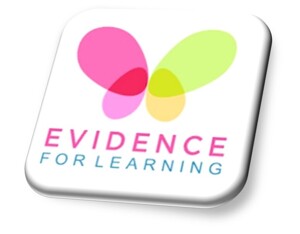 Evidence for Learning is used to record learners’ working levels, and progress made. All evidence gathered is automatically organised by the app and readily available on-demand. Stakeholders, including parents and carers, can peruse and sort evidence by any attribute. Schools use these features to save time and workload and be better informed during planning, moderation, and ongoing professional development.
Evidence for Learning is used to record learners’ working levels, and progress made. All evidence gathered is automatically organised by the app and readily available on-demand. Stakeholders, including parents and carers, can peruse and sort evidence by any attribute. Schools use these features to save time and workload and be better informed during planning, moderation, and ongoing professional development.
Evidence for Learning gives us a platform and the tools to develop and demonstrate connected practice which links curriculum, pedagogy, and assessment.
The learner’s progress is reported to parents on a number of occasions during the school year. Written information is sent to parents as part of the Annual Review process, and an end of year report and assessments are sent to parents in June. In addition, Parents' Meetings are held for all learners each term.
Partnership With Parents
Parents are a child’s first and most enduring educators. We value the role of the parent in their child’s education. We develop effective partnerships with parents and carers right from the very beginning. Parents are also welcome to discuss their child’s progress at any other time during the year.
Starting school
- Initial visit: parents/carers are invited for an informal visit to be introduced to the school.
- Home/nursery visit: learners also receive a home visit, or a visit may be made to the previous setting.
- Initial meeting: After a placement has been agreed upon, parents/carers and the child come along for an initial meeting. Here they meet the staff who will be closely involved with the child, including their class teacher and other agencies such as the speech and language therapists, occupational therapists, physiotherapists and nursing staff.
EYFS at TVS is committed to providing a broad, balanced and relevant curriculum that engages, motivates, excites and challenges our learners whilst preparing them for the future. Through careful planning and delivery, our curriculum is differentiated and personalised to meet the needs of our learners, enabling them to reach their potential and prepare them to take their place in society. We believe our pupils deserve the best provision possible, and therefore, we have high expectations and regularly review and evaluate the curriculum to ensure it is fit for its purpose.
If you would like any more information about our Early Years provision and/or Primary school, please don’t hesitate to get in touch with:
Mr Karol Stelmaszczyk Lauren Lightstone Joy Etete
Acting Headteacher Assistant Headteacher Lead – EarlyYears Foundation Stage

